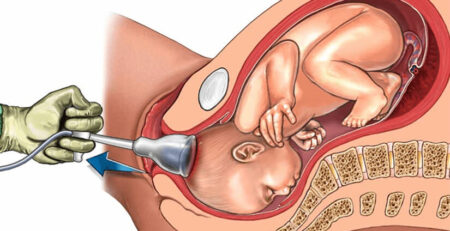Is IVF Treatment the Right Option?
Many couples dream of starting a family but face challenges along the way. In vitro fertilization (IVF) can offer hope for those struggling with infertility. Understanding whether IVF is the right option requires a deep dive into the treatment’s entails, its benefits, and when it might be suitable. This blog, with its comprehensive look at IVF, is the right place for those considering this path to parenthood.
What is Involved in IVF Treatment?
IVF treatment involves a series of medical procedures designed to assist with conception. The process starts with stimulating the ovaries to produce multiple eggs, which are then extracted and fertilized with sperm in a laboratory. The resulting embryos are cultured for several days before being transferred to the uterus. This method can bypass many fertility issues, such as blocked fallopian tubes, low sperm count, or unexplained infertility.

Steps Involved in an IVF Treatment Process
The In Vitro Fertilization (IVF) process involves several critical steps, each designed to maximize the chances of successful conception. Understanding these steps can help prospective parents feel more informed and prepared for the journey ahead.
Ovarian Stimulation: The first step involves stimulating the ovaries with hormone injections to produce multiple eggs. This increases the chances of retrieving viable eggs for fertilization. Hormone treatments are carefully monitored through blood tests and ultrasounds to ensure optimal egg development.
Egg Retrieval: Once the eggs are mature, they are retrieved from the ovaries using a minor surgical procedure guided by ultrasound. This procedure, known as follicular aspiration, is done under sedation to minimize discomfort.
Fertilization: The retrieved eggs are then mixed with sperm in a laboratory. Fertilization can occur naturally or through intracytoplasmic sperm injection (ICSI), where a single sperm is injected directly into an egg. ICSI is particularly useful in cases of severe male infertility.
Embryo Culture: The fertilized eggs (embryos) are cultured in the lab for several days to monitor their development. Embryologists closely observe the embryos, selecting the most viable ones for transfer based on their growth, grading and quality.
Embryo Transfer: Healthy embryos are selected and transferred into the woman’s uterus. This procedure is painless and does not require anaesthesia. The number of embryos transferred depends on various factors, including the woman’s age and embryo quality.
Pregnancy Test: About two weeks after the embryo transfer, a blood test is performed to determine if pregnancy has been achieved. This period can be emotionally intense as couples await the results to see if the treatment was successful.
Each step of the IVF treatment process is crucial and requires close coordination between the medical team and the patients. Successful navigation through these steps can significantly enhance the chances of conception, bringing couples closer to their dream of starting a family.
Understanding the intricacies of the IVF process helps demystify the treatment and prepares prospective parents for the various stages they will undergo. This knowledge, coupled with the support of experienced specialists, can make the IVF journey smoother and more manageable.
When Should IVF Treatment Be Considered?
IVF treatment can be an effective option in various scenarios, including:
Blocked or Damaged Fallopian Tubes: Women with blocked or damaged fallopian tubes can benefit from IVF, as it allows eggs to bypass the tubes entirely. Blocked fallopian tubes prevent the sperm from meeting the egg, thus hindering natural conception.
Male Factor Infertility: Issues with sperm count, motility, or morphology can be addressed through IVF, especially with techniques like ICSI. In cases where the sperm is unable to penetrate the egg, ICSI can directly inject a single sperm into an egg, enhancing the chances of fertilization.
Unexplained Infertility: When no clear cause for infertility is found, IVF treatment can offer a viable solution. Couples who have undergone various tests and still can’t find a reason for their infertility may benefit from IVF, which bypasses many potential issues.
Age-Related Infertility: As women age, egg quality and quantity decline. IVF by means of selection of embryo and embryo pooling or by utilizing younger donor eggs optimize the chances of successful outcome. For women over 35, the decline in egg quality can significantly impact fertility, making IVF a valuable option.
Endometriosis: Women with endometriosis often face challenges with natural conception. IVF can improve pregnancy chances by fertilizing eggs outside the body. Endometriosis can cause scarring and adhesions that affect the fallopian tubes and ovaries, complicating natural conception.
Genetic Disorders: IVF treatment combined with preimplantation genetic testing (PGT) can help ensure that only healthy embryos are implanted, reducing the risk of genetic disorders. Couples at risk of passing on genetic conditions can benefit from PGT, which screens embryos for specific genetic markers.
Repeated Pregnancy Loss: For women who have experienced multiple miscarriages, IVF can help select the healthiest embryos, increasing the likelihood of a successful pregnancy. IVF allows for the screening of embryos to ensure they are chromosomally normal, reducing the risk of miscarriage.
Failed Previous Treatments: Couples who haven’t succeeded with other fertility treatments, like intrauterine insemination (IUI), may find better results with IVF. IVF offers a higher success rate compared to other treatments and can be the next step after failed attempts.
Cancer Treatments: Individuals undergoing cancer treatments that could affect fertility might consider IVF to preserve eggs or sperm for future use. Cancer treatments like chemotherapy and radiation can impact fertility, making IVF treatment a crucial option for preserving reproductive potential.
Same-Sex Couples and Single Parents: IVF provides a pathway for same-sex couples and single individuals to have biological children using donor sperm, eggs, or surrogates. IVF allows these individuals to pursue parenthood through biological means.
IVF Success Rate
The success rate of IVF treatment varies based on several factors, including age, the cause of infertility, and the clinic’s expertise. Generally, younger women have higher success rates. Studies indicate that women under 35 have about a 40-50% chance of a successful pregnancy per cycle, while women over 40 have around a 15% success rate.
Factors Influencing IVF Success Rates
The success of IVF depends on many aspects, including the individuals involved and how the process is carried out. Let’s take a look.
Age: Age is one of the most critical factors affecting IVF success. Younger women typically have higher success rates due to better egg quality and quantity.
Cause of Infertility: The underlying cause of infertility can significantly impact IVF success. Issues like severe male infertility or advanced endometriosis might reduce success rates.
Embryo Quality: The quality of the embryos plays a vital role. High-quality embryos are more likely to implant and result in a successful pregnancy.
Uterine Health: A healthy uterine environment is crucial for embryo implantation. Conditions like fibroids or polyps can hinder success.
Lifestyle Factors: Factors such as smoking, obesity, and excessive alcohol consumption can negatively affect IVF outcomes. Maintaining a healthy lifestyle improves chances.
Clinic Expertise: The experience and technology of the fertility clinic significantly influence success rates. Clinics with advanced techniques and experienced specialists tend to have better outcomes.
Emotional and Financial Considerations
Deciding whether to undergo IVF treatment involves considering emotional, physical, and financial aspects. IVF can be a physically demanding process with multiple injections, frequent visits to the clinic, and the emotional rollercoaster of waiting for results. Couples should prepare for the stress and emotional strain that may accompany the treatment.
Financially, IVF may be costly for some couples as many processes, technologies, facilities, fees, etc., are involved. It’s essential to understand the costs involved, including medications, procedures, and potential additional expenses like genetic testing. Many clinics offer financing options, and some insurance plans may cover part of the cost. It’s crucial to discuss these aspects with your fertility specialist and financial advisor to plan accordingly.
Is IVF the Right Choice?
Deciding whether IVF treatment is suitable should involve a thorough consultation with a fertility specialist. The specialist will review individual medical histories, conduct necessary tests, and provide a personalized recommendation based on the findings.
Consulting with an IVF specialist in Delhi can provide clarity and direction. Dr. Rhythm Gupta, a renowned IVF specialist, offers expertise and a compassionate approach to helping couples navigate their fertility journey. Dr. Gupta can help evaluate your specific situation and determine if IVF is the best option for achieving pregnancy.
Finding the Right IVF Specialist in Delhi
Choosing the right IVF specialist is crucial for the success of the treatment. Look for a specialist with extensive experience, a high success rate, and access to advanced technology. Patient reviews and testimonials can also provide insight into the specialist’s reputation and patient satisfaction.
Making the Right Choice
Starting a family is a significant decision, and finding the right support can make all the difference. IVF treatment can offer a promising solution for many facing infertility challenges. With the right information and guidance, couples can confidently explore the possibilities that IVF treatment offers.
For those considering IVF, consulting with a skilled IVF specialist in Delhi, like Dr. Rhythm Gupta, can provide the expertise and support needed to navigate this journey successfully. Contact Dr. Gupta’s clinic to explore if IVF treatment is the right path to parenthood and take the first step toward realizing your dream of starting a family.












